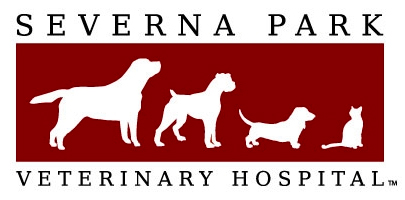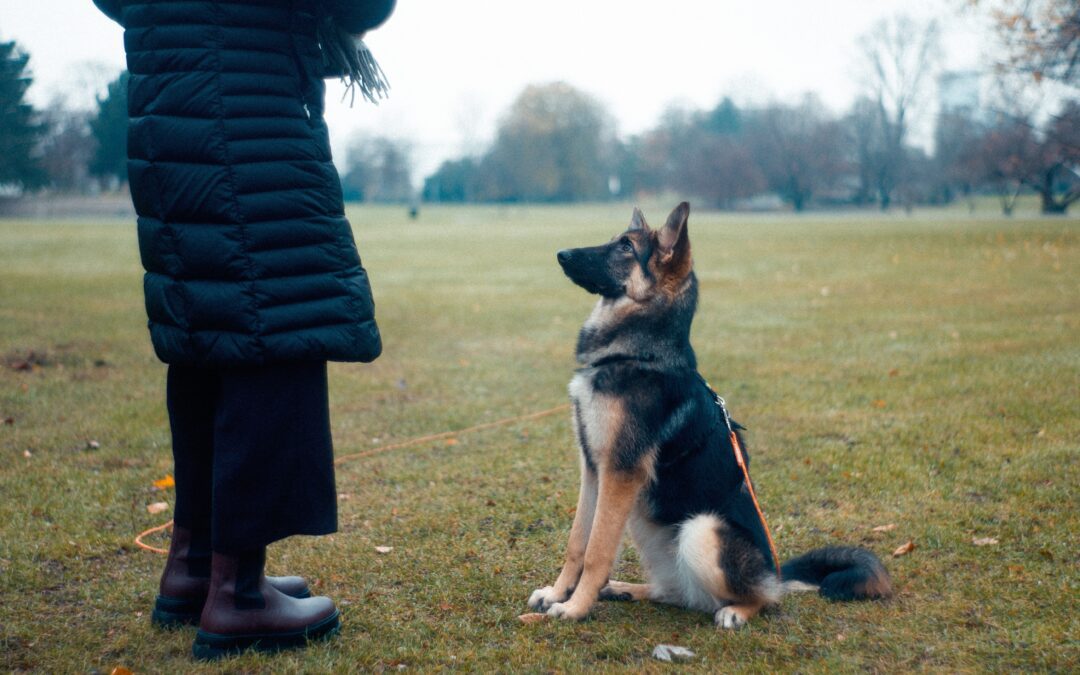There are many benefits of training your pet. In addition to teaching them good manners, it helps you learn their personality, provides mental stimulation, strengthens the human-animal bond, and helps build their confidence.
Even the most well-behaved dog at home can become nervous facing unfamiliar situations such as veterinary visits.
Continuously working on training can help make your pet more comfortable in these situations as well as curb unwanted behaviors. Working with your dog to be less nervous at the vet or during other stressful situations (grooming, boarding, etc.) takes time and will not happen overnight. It’s never too late to train your dog, but the older your pet, the longer it may take and the more patience you may need.
Our top recommendation when working with your pet during veterinary visits is to bring them in hungry! We don’t want you to skip any meals but try not to fill them up right before their appointment. We will have lots of yummy treats to offer to reward your pet for their good behavior or to distract them if they are nervous. If your pet has a favorite treat or is on a special diet, please bring it with you to the visit.
Let your pet sniff. Sniffing can be a natural stress reducer, and it’s easy to do. Arrive at your pet’s appointment a few minutes early so they can sniff or let them sniff everything on the way out.
If your pet is still anxious, we recommend stopping by for “Happy Visits”. Come into the office and give your pet some yummy treats! If your pet is up for it, you can also have our staff offer treats and pets. This helps the veterinary office become more familiar to your pet and allows them to associate it with positive interactions instead of just exams and vaccines.
Another option if your pet gets nervous around strange people or other animals is asking to wait in your car until your pet’s appointment. When you call our front desk to check in, just let us know and we will put you and your pet directly into an exam room as soon as one is available to avoid the front lobby. We can also check you out directly in the exam room, or you are welcome to put your pet in the car (weather permitting) while you come inside to check out at the front desk.
Training is much less stressful when you have fun with it! Have your pet show off their newest trick to impress the staff. Don’t worry if your pet gets stage fright, try again next visit. We understand! Practice makes perfect, and helping your dog relax at the vet can be a lifelong process.
In addition to working on training during veterinary visits, we recommend continuing at home by getting your dog used to being touched all over. Wait until your dog is relaxed. Start by rubbing their neck and work your way down their body, ending with touching their feet and nails. Gently lift their ears and look inside, and finally lift their lips to look at their teeth. Don’t be discouraged if your dog does not want to be touched in certain places. You can slowly work up to touching undesired places as your dog will allow. For example, if your pet doesn’t like their paws touched, start with briefly touching the top of their paw gently and rewarding. Once they are comfortable, work on holding your hand to the paw for a few seconds at time. Slowly, you may be able to work up to touching their individual toes or nails. Be patient and make sure to reward them for their good behavior with treats, pets, or play time with a favorite toy.
We also recommend working to teach your dog that a crate is a safe space at home. Even if you do not want to crate your dog daily it will be beneficial for them if they ever need to stay at a veterinary hospital, a boarding facility, or if they need to be rested after surgery. It can also be a valuable tool if your pet suffers from thunderstorm, firework, or separation anxiety.
Training is a lifelong process, and while your pet will keep improving as you work with them, there are some pets that never become comfortable at the vet. For these anxious pets, our veterinarians are always open to discussing additional options to help during vet visits and/or other stressful events. For some, this may include medical management in addition to continuing training. We understand that a veterinary hospital can be a scary place for them, and we are committed to working on minimizing their stress so their visits can be as positive as possible. We are also always happy to recommend local professional trainers to help during your pet’s lifelong learning process!

